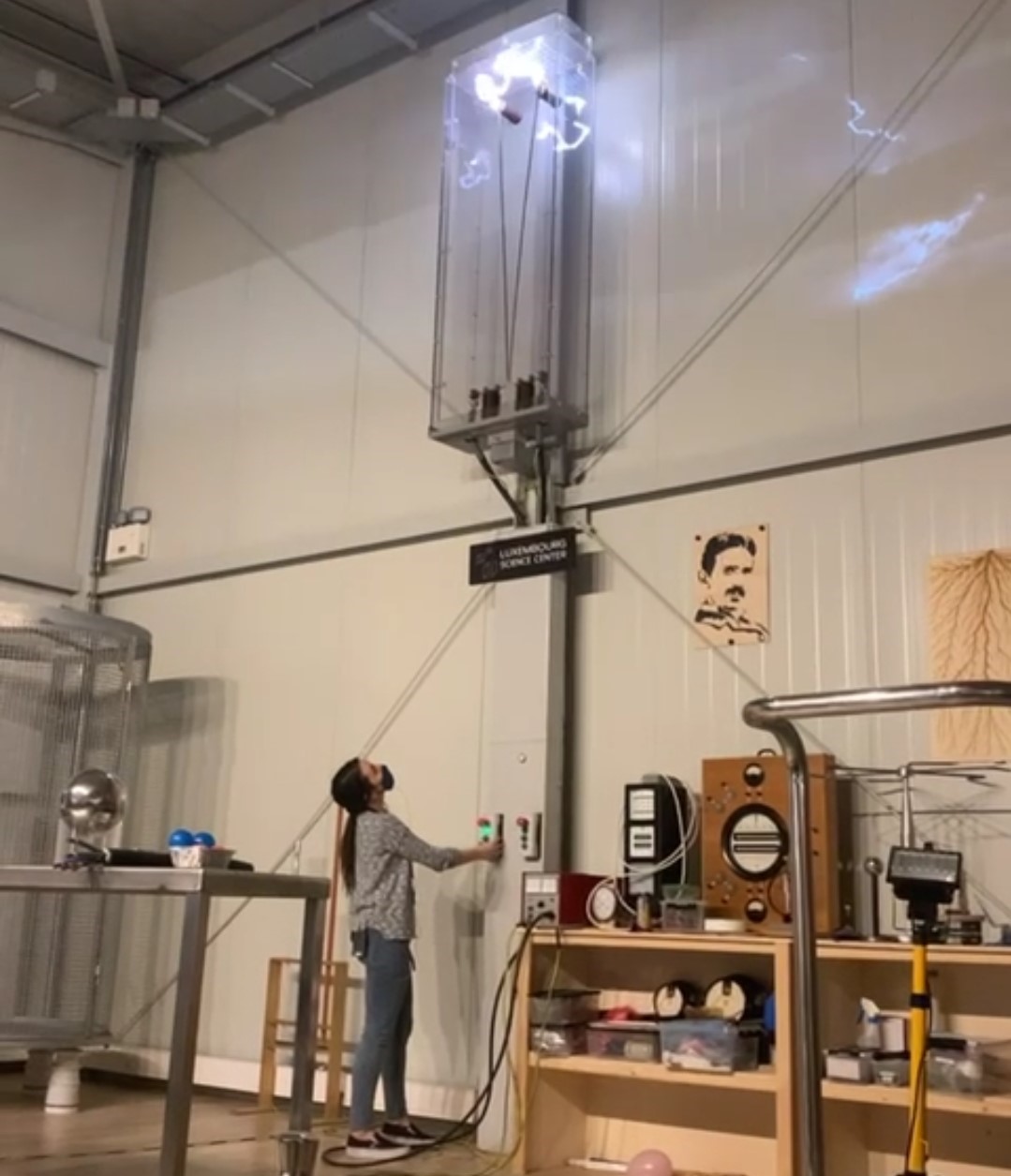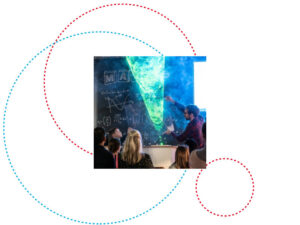The University of Luxembourg is collaborating with 13 different partners in order to offer a variety of hands-on science communication internships for doctoral candidates in Luxembourg. The first interns have successfully finished their training at host institutions and report about their experiences.
The science communication internships are a complimentary activity to the science communication course set up by the Doctoral Education in Science Communication (DESCOM) project. However, most of the internships can also be taken without prior attendance to the course. The internships are an opportunity to gain hands-on experience and get to know the working environment in science communication.
The doctoral candidates either join an ongoing communication project or work at their own tailor-made project, while being supervised by experienced science communicators. More than 24 different internships in total are generally offered by six internal partners (the communications department of the University of Luxembourg (uni.lu), the communication office of the Faculty of Science, Technology and Medicine (FSTM) as well as the Luxembourg Centre for Systems Biomedicine (LCSB), the Scienteens Lab, the Interdisciplinary Centre for Security, Reliability and Trust (SnT) and the Luxembourg Learning Centre (LLC)) and seven external partners (the Luxembourg Institute of Health (LIH), the Integrated Biobank of Luxembourg (IBBL), the Luxembourg Institute of Science and Technology (LIST), the Luxembourg Institute of Socio-Economic Research (LISER), the Luxembourg Science Center (LSC), the Luxembourg National Museum of Natural History (MnhnL) as well as the Fonds National de la Recherche Luxembourg (FNR)).

The first interns
The first intern was Sonia Sabaté Soler, a doctoral candidate at LCSB. She joined the Luxembourg Science Center in Differdange for her internship, where she worked as a scientific mediator. Apart from guiding visitors, she prepared and presented the Electricity show that teaches about electrons, electricity and its history in an interactive way. “This bi-directional communication with the audience during the show is extremely important to catch the attention and enthusiasm of the audience”, Sonia Sabaté Soler learned during the internship.
Artem Malyeyev, a doctoral candidate at the Department of Physics and Materials Science (DPhyMS), carried out his internship at the Scienteens Lab, the first research lab for high-school students in Luxembourg. He improved the didactic material of the science workshop about waves and interferences. The idea was to pack the whole workshop into a small and aesthetically pleasing kit that can be explored by high school and bachelor students.
“In the end, it turned out to be easier to start back from the beginning and create new designs from scratch rather than modify the existing ones”, Artem Malyeyev recalls. After about 10 iterations of the design of the 3D printed prototype, the wave interference kit © is now ready to go. “The most challenging for me was to stop. Stop improving the designs. Stop optimizing the print procedures. And stop trying to add new features.” For others, it turned out to be challenging to continue their internship in 2020.

Adapting the internships to the new normal
“After attending the DESCOM science communication course, I decided to apply for an internship at the Scienteens Lab”, says Louis Krieger, a doctoral candidate from LIST. “I had a lot of in-depth knowledge in optics that would be fun to teach others.” He gave workshops in Physics and built spectrometers together with high-school students. During this time, he learned how much time goes into preparing and holding a workshop. “But the most challenging was to get comfortable with being the one everyone in the room looked to for more information. Having that responsibility was stressful and difficult to overcome. But it was overcome and I do not regret it.” When the pandemic struck in 2020, all on-site workshops at the Scienteens Lab were cancelled, leaving Louis Krieger unable to continue this internship. Fortunately, since the end of 2020, the workshops can continue in a slightly different format.
Given the current difficulty or inability to offer on-site internships, the different host institutions have adapted their offers to the pandemic. Internships at below host institutions are possible remotely as well:
- FSTM
- Scienteens Lab
- SnT
- LLC
- LIH
- IBBL
- Uni.lu (tbd)
- FNR (tbd)
You can find the individual internship descriptions in this document. If you are interested in applying for an internship, please contact Nicole Paschek (Nicole.paschek@uni.lu).
teaser image: ©Luxembourg Science Center (Photographer: Claude Piscitelli)
—–
The DESCOM project is supported by the Luxembourg National Research Fund (FNR). DESCOM aims to support interactions between academia and the public by providing different modes of training in science communication as well as organising and supporting outreach activities.
